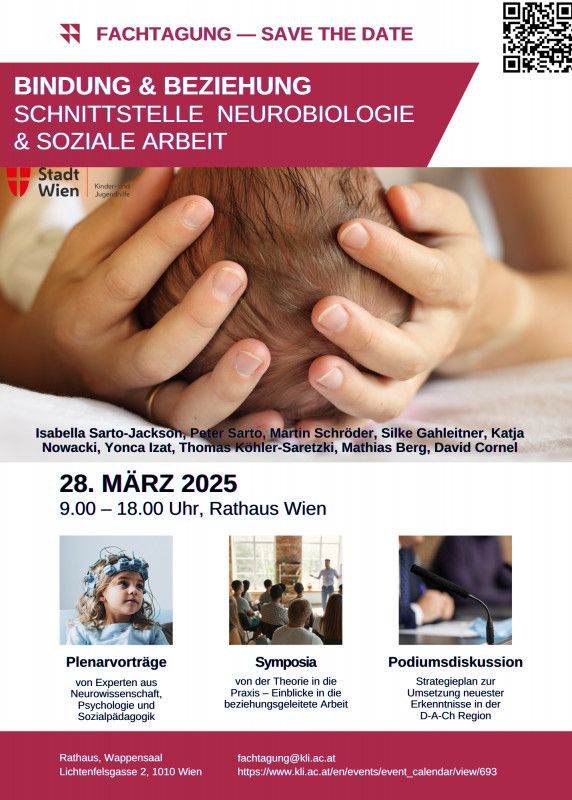News Details

The conference Bindung & Beziehung: Schnittstelle Neurobiologie & Soziale Arbeit (translation: Bonding & Relationship: Interface between Neurobiology & Social Work), co-organised by Isabella Sarto-Jackson and colleagues, was held at the Rathaus, Vienna, on the 28th of March 2025. The conference focussed on how early bonding experiences with caregivers play a central role in emotional, social and cognitive development.
Early attachment experience plays a central role in emotional, social, and cognitive development. These experiences not only shape brain development in childhood and adolescence, but also have a significant influence on psychological and social development later in life. Attachment theory combines approaches from the humanities and social sciences and its relevance is further supported by current findings from brain research. This theory offers great potential for exchange between science and practice, i.e., providing a translational approach. To this end, scientific models are tested in practice and, if limitations of application become apparent, are fed back to basic research for further development. In this way, attachment research can not only improve the care of young people but also serve as a model for reflection for professionals.
At this conference, scientists discussed findings from neurobiology, cognitive psychology, and cognitive science with the aim of generating new insights for social work and social-educational practice. It was shown that basic research can provide essential impulses for the development of theory-based action and intervention concepts for psychosocial support.
This event was supported by the Stadt Wien, Austrian Neuroscience Association, and the KLI.

